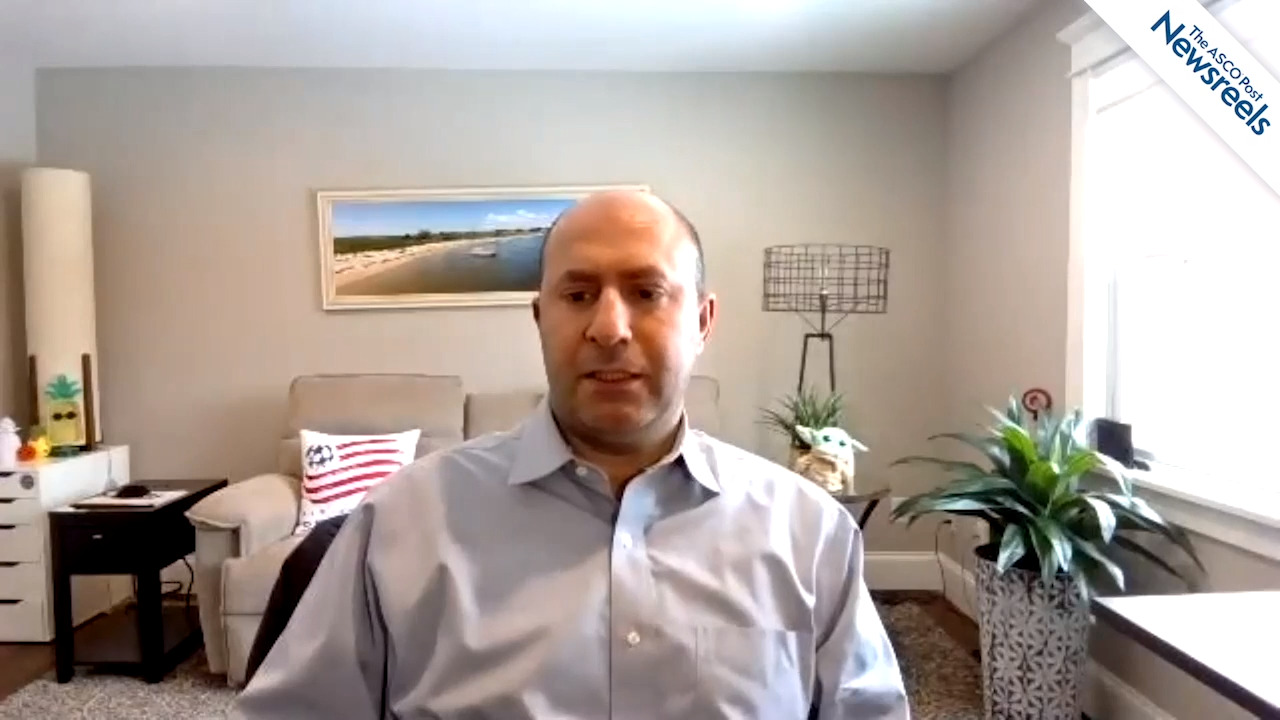Neeraj Agarwal, MD, on Prostate Cancer: Apalutamide vs Placebo in Treatment of Metastatic Disease
2021 Genitourinary Cancers Symposium
Neeraj Agarwal, MD, of Huntsman Cancer Institute at the University of Utah, discusses final results of the phase III TITAN study, which showed apalutamide plus androgen-deprivation therapy improved overall survival, reducing the risk of death up to 48%. This combination treatment also delayed castration resistance and maintained health-related quality of life for patients with metastatic castration-sensitive prostate cancer (Abstract 11).
The ASCO Post Staff
A spirited discussion ensued when we asked Christopher Sweeney, MBBS, of Dana-Farber Cancer Institute, and Thomas Powles, MD, PhD, of Cancer Research UK Barts Centre, to compare notes on how they treat bladder, prostate, and kidney cancers.
The ASCO Post Staff
Toni K. Choueiri, MD, of Dana-Farber Cancer Institute, discuses a preliminary phase II analysis of the HIF-2a inhibitor belzutifan in combination with cabozantinib, which showed antitumor activity in previously treated patients with metastatic clear cell renal cell carcinoma (Abstract 272).
The ASCO Post Staff
Elizabeth R. Plimack, MD, of Fox Chase Cancer Center, discusses key abstracts discussed at this year’s meeting on bladder cancer and offers her views on the latest trends and findings (Abstracts 391, 393, 434).
The ASCO Post Staff
Elizabeth R. Plimack, MD, of Fox Chase Cancer Center, discusses key abstracts discussed at this year’s meeting on renal cell carcinoma and offers her views on the latest trends and findings (Abstracts 269, 308, 270, 313).
The ASCO Post Staff
Sumanta K. Pal, MD, of City of Hope, discusses phase II results from the SWOG 1500 study, which showed that compared with crizotinib and savolitinib, cabozantinib was the only agent that prolonged progression-free survival vs sunitinib in patients with metastatic papillary renal cell carcinoma (Abstract 270).





